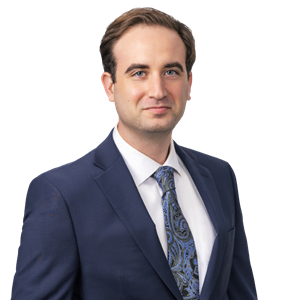
When Can a Government Official Limit Comments or Block Users on Social Media?
The Supreme Court Offers Guidance
In Lindke v. Freed, the U.S. Supreme Court found that a civil rights violation might have occurred when the City Manager of Port Huron, Michigan deleted and blocked comments on his personal Facebook page. This depended on whether the manager’s creation and maintenance of his social media site qualified as state action. The Court remanded the case to the Sixth Circuit to apply this new test: If a governmental official posts about job-related topics on social media, their site is “attributable to the State only if the official (1) possessed actual authority to speak on the State’s behalf, and (2) purported to exercise that authority when he spoke on social media.” Lindke v. Freed, slip. op. at 1.
The Court found that some social media accounts (and all their content and posts) should be presumed public. On the other hand, the court found that public officials have a First Amendment right to maintain clearly-demarcated non-governmental, personal accounts and posts. However, simply designating an account as “personal” does not absolve a public official of liability if the site’s content drifts within the realm of the new, and relatively strict, state-action test.
In determining liability, the Court directed lower courts to carefully consider the various capabilities of different tools on different platforms. It granted more latitude to an official’s removing a comment as opposed to blocking someone from a site entirely. The Court simultaneously sent back a similar decision from the Ninth Circuit, which adopted a broader test focused “more on whether the account’s appearance and content look official.” Slip op. at 5.
Personal Versus Private Speech
On review, the Court acknowledged the fine distinction between an official’s public and private speech. The Court emphasized that public officials like the Port Huron manager do not “relinquish [their] First Amendment rights” when they enter public service. “On the contrary, ‘the First Amendment protects a public employee’s right, in certain circumstances, to speak as a citizen addressing matters of public concern.’” Slip Op. at 7.
The court focused most of its analysis on the case before it, where an ostensibly personal social-media account was alleged to have included official posts on behalf of the city, rather on behalf of the individual manager.
For a public official to be liable for unlawfully limiting access to a social media forum, a plaintiff must first make a threshold showing that the official “possessed actual authority to speak on the State’s behalf.” The official, “must have actual authority rooted in written law or longstanding custom to speak for the State [which] … extends to speech of the sort that caused the alleged rights deprivation.” Slip. op. at 12. The Court indicated, for example, a valid question in determining liability is whether a City Manager’s portfolio includes making public pronouncements.
The test’s second step asks whether the official “purported to exercise [his] authority when he spoke on social media.” Slip op. at 8. “The appearance and function of the social-media activity are relevant at the second step....” Slip. op. at 8. “[A]n official does not necessarily purport to exercise his authority simply by posting about a matter within it.” Slip op. at 14. The Court suggested that if a “mayor merely repeats or shares otherwise available information—for example, by linking to the parking announcement on the city’s webpage—it is far less likely that he is purporting to exercise the power of his office.” Slip op. at 14.
The Court noted that government officials can do more to position their social media activity as personal speech. To do so, officials should “keep personal posts in a clearly designated personal account.” Slip Op. at 15 (emphasis added). The Court suggested that a simple label or disclaimer would suffice, such as “this is the personal page of [John Doe]” or “the views expressed are strictly my own” on a public official’s account. Such a disclaimer “would be entitled to a heavy (though rebuttable) presumption that all of the posts on his page were personal.” Slip Op. at 13.
In contrast, the Court explained that, for some accounts, “context can make clear that a social-media account purports to speak for the government”—such as accounts that belong to a political subdivision or accounts that are passed down from user to user (e.g., @PHuronCityMgr). Further, the Court stated a public official who uses government staff to make a post on a personal or public account “will be hard pressed to deny that he was conducting government business.” Slip Op. at 14.
Differences Between Deleting Comments and Blocking Users
The Court noted that the Port Huron city manager both deleted Petitioner’s comments and also blocked Petitioner from his Facebook page altogether. The Court explained that, because blocking operates on a page-wide basis on Facebook, a court would have to consider whether the official engaged in government action with respect to any post on which a plaintiff wished to comment. The Court opined: “the bluntness of Facebook’s blocking tool highlights the cost of a ‘mixed use’ social-media account: If page-wide blocking is the only option, a public official might be unable to prevent someone from commenting on his personal posts without risking liability for also preventing comments on his official posts.” Slip. Op. at 15. On other platforms, the Court noted, blocking a user might prevent a member of the public from viewing all posts of a particular account.
Garnier And The Ninth Circuit
Of relevance to local officials in the western U.S., including California and Oregon, the Supreme Court returned Garnier v. O'Connor-Ratcliff, No. 21-55118 (9th Cir. 2022) to the Ninth Circuit, for reevaluation in light of the new test. The Ninth Circuit had held deletion and blocking of comments on a government official’s personal account violated the First Amendment. The Supreme Court contrasted the Ninth Circuit’s approach with the Sixth Circuit’s approach saying the Ninth Circuit focused “more on whether the account’s appearance and content look official” and not “the connection between the official’s authority and the account.” Slip Op. at 5.
Best Practice: Separate Public and Private Accounts
Lindke suggests that it is even more important to have clarity in local government policy, job descriptions, and public information workflow to demonstrate with clarity who speaks for the agency and who does not. Lindke also suggests that, even with these official policies in place, it is possible that unofficial sites that their hosts consider their own can be deemed to have public posts or to be public sites, exposing the hosts for civil rights liability if they are not maintained openly. To ameliorate that concern, local officials can maintain fully separate official and personal accounts, allowing full access to the former if they wish to limit access to the latter. Similarly, the Court found that a personal site could remain personal even if it included links or re-posts already publicly available somewhere else. Nonetheless, the Court’s guidance was finely tuned to the Port Huron facts, which means the lower courts will be busy interpreting this case for years to come.
Officials and public employees should consult their agency’s counsel or a qualified legal professional to guide their social media activity going forward.
Disclaimer: BBK Legal Alerts are not intended as legal advice. Additional facts, facts specific to your situation or future developments may affect subjects contained herein. Seek the advice of an attorney before acting or relying upon any information herein.





